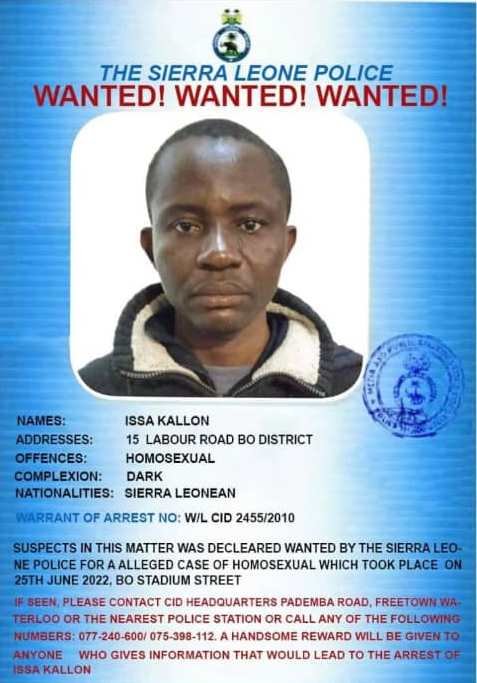By Ragan M. Conteh
Some CSOs which made up of 13 are working on advocating for social change in Sierra Leone.
They have financial partners as well as religious and traditional leaders, the ‘It’s Life’ coalition is a framework for consultation and exchange whose objective is to contribute to advancing the sexual and reproductive health and rights of adolescents, young people and women in Nigeria.
By establishing solid alliances through the C’est La Vie (CLV) coalition, the aim of our action is to join forces around a strong and inclusive social movement for change in order to amplify our voices and give considerable resonance to the concerns of communities and be better heard by decision-makers.
This framework for expression and knowledge sharing is therefore an initiative that enables us to drive local dynamics by creating safer environments for women and girls. The aim is to promote the improvement of their sexual and reproductive rights and the transformation of social norms rooted in our societies.
Sexual and reproductive health and gender equality issues are often considered taboo subjects and are rarely discussed in our societies, for cultural, religious or political reasons.
Whether we are talking about gender-based violence, in particular genital mutilation, people often find it difficult to discuss these issues within the family or social circle.
This lack of information and dialogue in families, schools and society in general exposes adolescents/young people to harmful practices linked to early sexuality and risky sexual behavior. As a result, communities, particularly young women, do not have or exercise their right to sexual and reproductive health.
Patriarchal traditions are still strong and widespread in our societies, with traditional practices such as female genital mutilation further curtailing the rights of adolescents, young girls and boys and vulnerable women, and making them victims of physical, moral and sexual violence. The figures below bear witness to this.
80% of girls and women aged between 15 and 49 have been circumcised, and many others claim to be victims of female genital mutilation.
10% of mothers of girls aged 0 to 14 who have been circumcised believe that the practice should continue.
In our country today, many teenage girls have undergone excision. This is the case of Safi. She was nine years old when she visited her grandparents in her village. It was during the school holidays. She loved her village. The streams, the hills, the forests, it was beautiful. Safi couldn’t wait to go home after the holidays and tell her friends about her stay. Little did she know that her holiday would soon turn into a nightmare. She didn’t know that in her village, all the girls had to be circumcised. A few days after her arrival, she went to a party with her grandmother. When they arrived, there was a long line of girls waiting their turn to go into a hut. But every time a little girl entered the hut, she came out in tears. Safi told her grandmother that the party was strange. For her, when you go to a party, it’s to see lots of laughter and dancing.
Here, all the girls were crying. Safi had to join the queue. Then it was her turn to enter the hut. Four women were already inside. Before she realised what was happening, the women tackled her to the floor. She was held down and one of the women cut off her clitoris. This is how Safi was circumcised, changing her body and her life forever.
This situation experienced by Safi and so many young girls in our country could be avoided.
Rooted in gender inequality and power imbalances, female genital mutilation is a violation of the fundamental rights of girls and women.
It is therefore urgent to take action against excision. A practice that inflicts unnecessary pain and has lifelong consequences on their physical and mental health. We urge parents who believe that this practice should continue to change their perception for the good of girls and women.
To our national leaders and decision-makers, from Freetown to Makeni, through Kailahun and across the country, we ask you to ban female circumcision, to protect girls and women from this practice.
The CLV coalition invites community and state actors to join its action to contribute to raising awareness, but above all to participate in the detection, denunciation and prevention of cases of female genital mutilation.
Member organizations of the coalition CLV-Sierra Leone
Girl Child Network Sierra Leone
Keep the Drums and Lose the Knife
Forum Against Harmful Practices
Teenage pregnancy secretariat
Forum Against Harmful Practices
Ministry of Health and Sanitation
Girl 2 Girl Empowerment
Reproductive Health and Family planning , Ministry of Social Welfare , Amazonian Initiative Movement , Hawa Trust Sierra Leone , Her Future Foundation and Girl-2-Girl Network.











































































































































































































































































































































































































































































































































































































































































































































































































































































































































































































































































































































































































































































































































































































































































































































































































































































































































































































































































































































































































































































































































































































































































































































































































































































































































































































































































































































































































































































































































































































































































































































































































































































































































































































